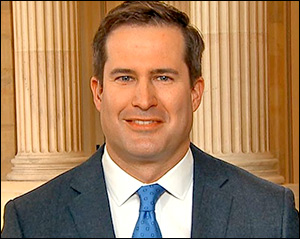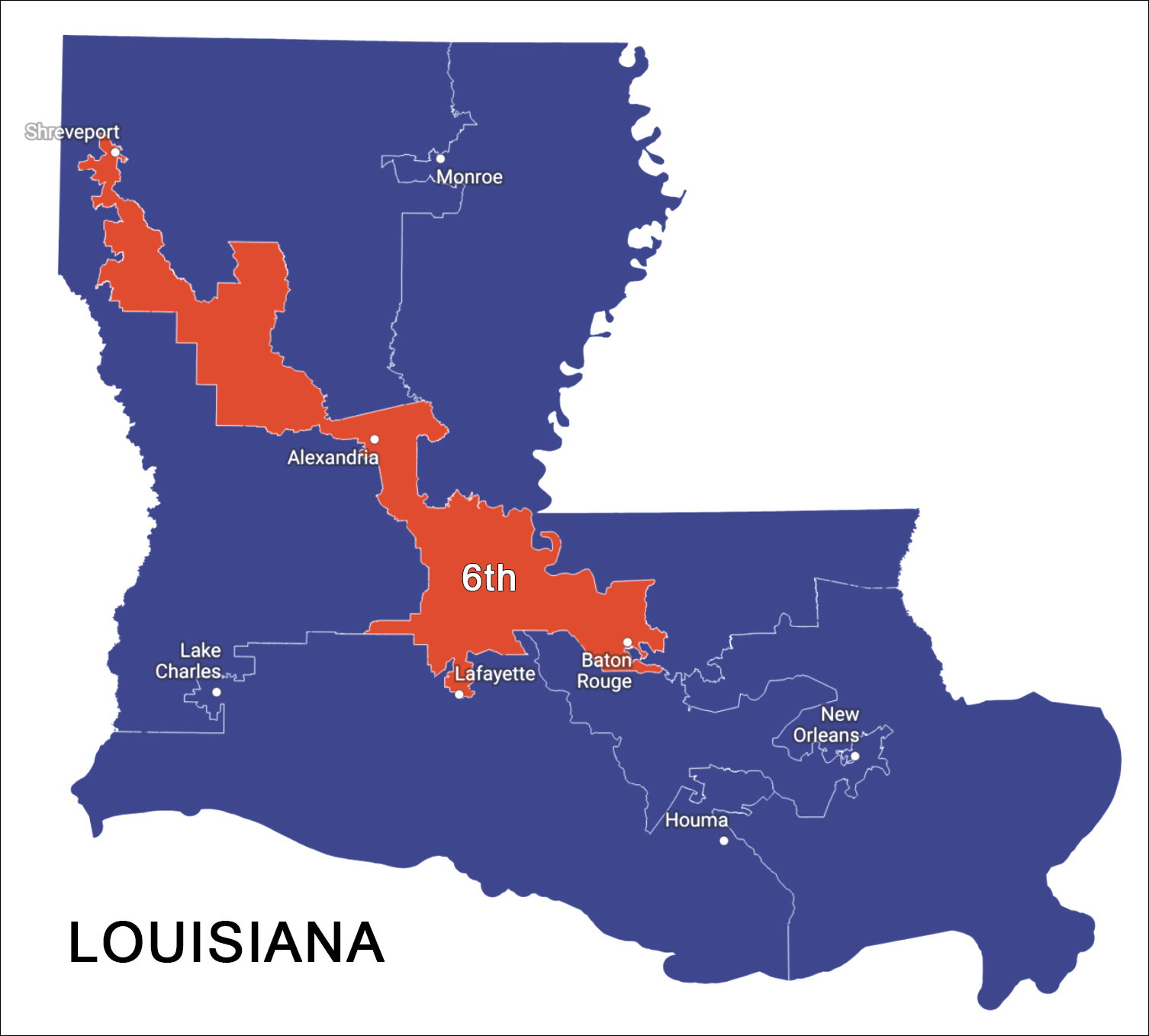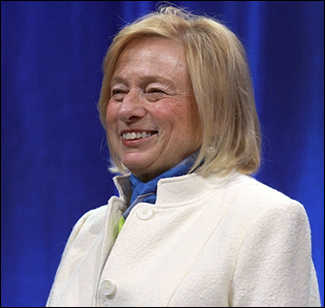By Jim Ellis — Wednesday, Oct. 22, 2025
Senate
 Continuing from yesterday’s update, the Federal Election Commission has released new Senate campaign finance numbers, which help us preview the resource standing of the key 2026 US Senate contests. Today’s installment covers the most competitive contests from Massachusetts through Texas.
Continuing from yesterday’s update, the Federal Election Commission has released new Senate campaign finance numbers, which help us preview the resource standing of the key 2026 US Senate contests. Today’s installment covers the most competitive contests from Massachusetts through Texas.
Massachusetts
Just in the past week we see a Democratic primary emerging between Bay State Sen. Ed Markey and Rep. Seth Moulton (D-Salem). Both men have equivalent cash reserves ($2.7M for Markey; Moulton: $2.1M) but it is clear that Sen. Markey begins as the favorite.
Rep. Moulton will try to make the incumbent’s age (Markey will be 80 years old at the time of the next election) an issue, but it is unlikely that such an attack will dissuade a majority of Democrats from voting for the veteran politician who first came to Congress in 1976.
This primary challenge is a very long shot but the Massachusetts primary cycle is lengthy, and much can change. The nomination election is not scheduled until Sept. 1, 2026.
Michigan
The open Michigan Senate race will be one of the top national contests next year. Republicans have successfully given former US Representative and 2024 US Senate nominee Mike Rogers a clear path to the nomination which helps solve one of their key past problem areas: fundraising. The fact that Rogers does not have to spend much to secure the nomination means virtually all fundraising assets will be directly applied to the general election. At this point, Rogers holds $2.7 million in his campaign account.
The Democrats, on the other hand, are embroiled in a tough primary that won’t be decided until Aug. 4. The three major candidates have equivalent resources. Rep. Haley Stevens (D-Birmingham) holds $2.6 million, state Sen. Mallory McMorrow (D-Royal Oak) reports $1.4 million cash-on-hand, and former Wayne County Health Director Abdul El-Sayed has also proven himself a strong fundraiser. His campaign account reports $1.8 in available resources.
The Democratic primary is a toss-up at this point. Expect a tough campaign before a nominee is crowned and financial resources will be exhausted. Democrats are adept fundraisers, however, so the winner’s campaign treasury will be quickly replenished after the party unites post-primary.
Minnesota
The Land of 10,000 Lakes also features a competitive Democratic Senate primary. In this case, the candidates are vying to replace the retiring Sen. Tina Smith (D). Today, it appears the nomination contest is evolving into a two-way affair between Lt. Gov. Peggy Flanagan and Rep. Angie Craig (D-Prior Lake).
In Minnesota, the state political party endorsements are very influential. Usually, a candidate not obtaining the party endorsement withdraws from the race but is not required to do so. For this Senate primary, it is likely that both of these candidates will advance into the Aug. 11 primary irrespective of the party endorsement process.
According to third quarter (Q3) financial reports, Craig has a significant fundraising advantage. She posts $2.9 million cash-on-hand as compared to just under $836,000 for Lt. Gov. Flanagan.
Nebraska
In 2024, Independent Dan Osborn became the election cycle’s surprise Senate candidate when he took several polling leads over Nebraska Sen. Deb Fischer (R). In the end, Sen. Fischer claimed a six-point win, but Osborn’s strong fundraising effort and populist appeal turned what should have been an easy Fischer win into a competitive contest.
Now, Osborn returns for another Senate campaign, this time against Sen. Pete Ricketts (R). Once again, Osborn is likely to enjoy Democratic Party official support; therefore, the party won’t field its own candidate. Sen. Ricketts is still a strong favorite, but this contest is likely to again draw national attention.
The Q3 financial disclosure reports show Sen. Ricketts holding $1.2 million in his campaign account while Osborn posts just under $517,000.
New Hampshire
Democratic Rep. Chris Pappas (D-Manchester) has successfully defined himself as the consensus party candidate to replace retiring Sen. Jeanne Shaheen (D).
Republicans are likely to soon see a new entry, possibly later this week. Former Sen. John E. Sununu, the son of former Governor and White House chief of staff John Sununu and brother of former four-term Gov. Chris Sununu, is likely to enter the campaign very soon. At this point, the leading Republican is former Massachusetts Senator and 2014 New Hampshire Senate candidate Scott Brown.
Early polling puts Sununu in position to tighten the race against Rep. Pappas, while the Congressman appears poised to easily defeat Brown. Rep. Pappas reports $2.6 million in his campaign account as compared to just under $803,000 for Brown. Since Sununu is not an official candidate, he is not yet required to file a disclosure report.
North Carolina
In what promises to be one of the defining national Senatorial contests, the general election candidates in the Tar Heel State are unofficially set: Democratic Gov. Roy Cooper and former Republican National Committee chairman Michael Whatley are virtually unopposed for their respective nominations.
Cooper has a major fundraising advantage. He already holds $8.6 million in his campaign account. Whatley, who started later, has just $1.1 million. Expect this race to go down to the wire. All North Carolina statewide races are tight, and this one will be no exception.
Ohio
The Ohio special election is another race where the general election is virtually set. Appointed Sen. Jon Husted (R) will run to serve the final two years of the current term. Opposing him will be former Sen. Sherrod Brown (D), who lost his seat in 2024.
This will be an expensive race, since then-Sen. Brown raised over $100 million for his last campaign. At this point, Brown has $5.9 million in cash-on-hand. Sen. Husted posts a similar $5 million. While Sen. Husted has the advantage because Ohio has been moving decidedly rightward in recent elections, we can count on seeing a very competitive contest here next year.
Texas
The Texas Senate situation has recently changed. With Rep. Wesley Hunt (R-Houston) joining the Senate Republican primary, the race is no longer solely a battle between Sen. John Cornyn and Attorney General Ken Paxton. The chances of the Republicans heading to a post-primary runoff are now high.
For the Democrats, former Congressman and 2024 Senate nominee Colin Allred is no longer a lock for the 2026 party nomination. Polling shows him dropping. Announced candidate James Talarico, an Austin state Representative, is making significant gains. Rep. Jasmine Crockett (D-Dallas), while not an announced candidate, is the clear polling leader. Not only is the Republican primary in a state of flux, but now the Democratic nomination battle is as well.
On the financial front, Sen. Cornyn is the strongest among all candidates. He holds $6.0 million in his campaign account, which compares favorably against AG Paxton ($3.2M) and Rep. Hunt ($1.5M).
For the Democrats, it is Talarico who possesses the most money at $4.9 million. Rep. Crockett, again not officially in the race, has $4.8 million, and Allred finds himself trailing in this category too, with $1.8 million. In 2024, Allred was one of the top Democratic fundraisers in the country.
The Texas Senate race will be a race to watch from the March 3 primary until the campaign concludes on Election Day, Nov. 4, 2026.





